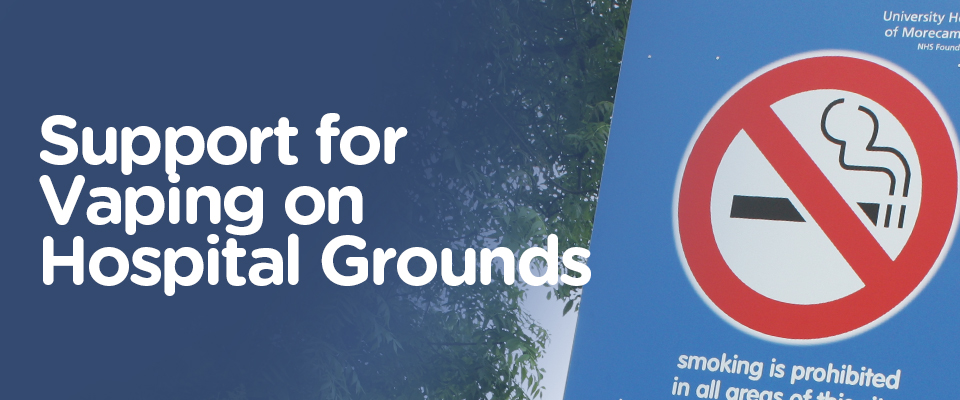Many studies have indicated vaping is the most likely way for smokers to quit the habit. It has been suggested by some that vaping kits should be made available on the NHS to try and help bring down the number of smokers in the UK.
Now, the Royal College of Physicians has suggested support should be made available for both staff and patients in NHS hospitals. The report, “Hiding in plain sight: Treating tobacco dependency in the NHS”, was released on 26th June. It suggests offering “default, opt-out” interventions for smokers when they are seen by clinicians.
25% of hospital patients smoke
The stat was provided within the report, which also revealed the cost of treating smokers is around £1 billion a year. The report also points out there is no cohesive approach towards vaping on hospital grounds. Some freely allow it, while others only permit vaping in certain areas. Other hospitals have banned it, leaving vapers unable to use e-cigs while in hospital.
What is the opt-out model of treatment suggested?
The Royal College of Physicians has suggested the NHS should adopt an intervention process that would be offered as a matter of course. They state people are not usually asked if they smoke, which means the chance to offer help is not always there.
The report goes on to say over one million smokers end up in hospital each year. It causes death and disability and the NHS largely treats the conditions caused by smoking rather than trying to offer help to quit the habit at an earlier stage. The report even states it is unethical not to offer smoking cessation services as an opt-out element of the NHS.
Will smokers reject the help or appreciate it?
No one enjoys being told what they can and cannot do. That means some smokers may not be happy at being given smoking cessation services as a matter of course. However, for some who want to quit but haven’t yet done so, it could be the support element they need.
If electronic cigarettes were made available on the NHS, the upfront cost of providing them would surely be offset by the expected drop in treatment required for treating diseases caused by tobacco. We wonder whether this will eventually happen, and whether the idea of providing smoking cessation services with an opt-out feature would be the best thing the NHS could do. What do you think?
